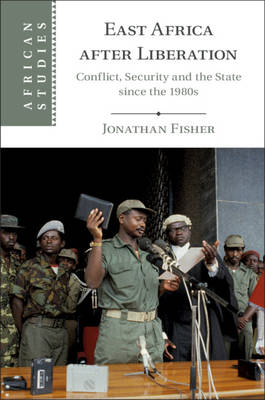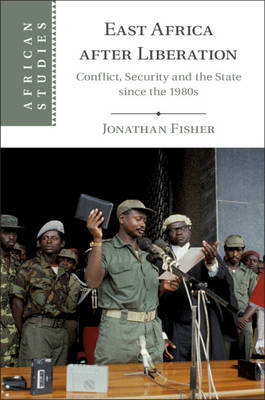
- Afhalen na 1 uur in een winkel met voorraad
- Gratis thuislevering in België vanaf € 30
- Ruim aanbod met 7 miljoen producten
- Afhalen na 1 uur in een winkel met voorraad
- Gratis thuislevering in België vanaf € 30
- Ruim aanbod met 7 miljoen producten
Zoeken
€ 125,95
+ 251 punten
Uitvoering
Omschrijving
Between 1986 and 1994, East Africa's postcolonial, political settlement was profoundly challenged as four revolutionary 'liberation' movements seized power in Eritrea, Ethiopia, Rwanda and Uganda. After years of armed struggle against vicious dictatorships, these movements transformed from rebels to rulers, promising to deliver 'fundamental change'. This study exposes, examines and underlines the acute challenges each has faced in doing so. Drawing on over 130 interviews with the region's post-liberation elite, undertaken over the course of a decade, Jonathan Fisher takes a fresh and empirically-grounded approach to explaining the fast-moving politics of the region over the last three decades, focusing on the role and influence of its guerrilla governments. East Africa after Liberation sheds critical light on the competing pressures post-liberation governments contend with as they balance reformist aspirations with accommodation of counter-vailing interests, historical trajectories and their own violent organisational cultures.
Specificaties
Betrokkenen
- Auteur(s):
- Uitgeverij:
Inhoud
- Aantal bladzijden:
- 342
- Taal:
- Engels
- Reeks:
- Reeksnummer:
- nr. 147
Eigenschappen
- Productcode (EAN):
- 9781108494274
- Verschijningsdatum:
- 16/04/2020
- Uitvoering:
- Hardcover
- Formaat:
- Genaaid
- Afmetingen:
- 178 mm x 231 mm
- Gewicht:
- 589 g

Alleen bij Standaard Boekhandel
+ 251 punten op je klantenkaart van Standaard Boekhandel
Beoordelingen
We publiceren alleen reviews die voldoen aan de voorwaarden voor reviews. Bekijk onze voorwaarden voor reviews.











